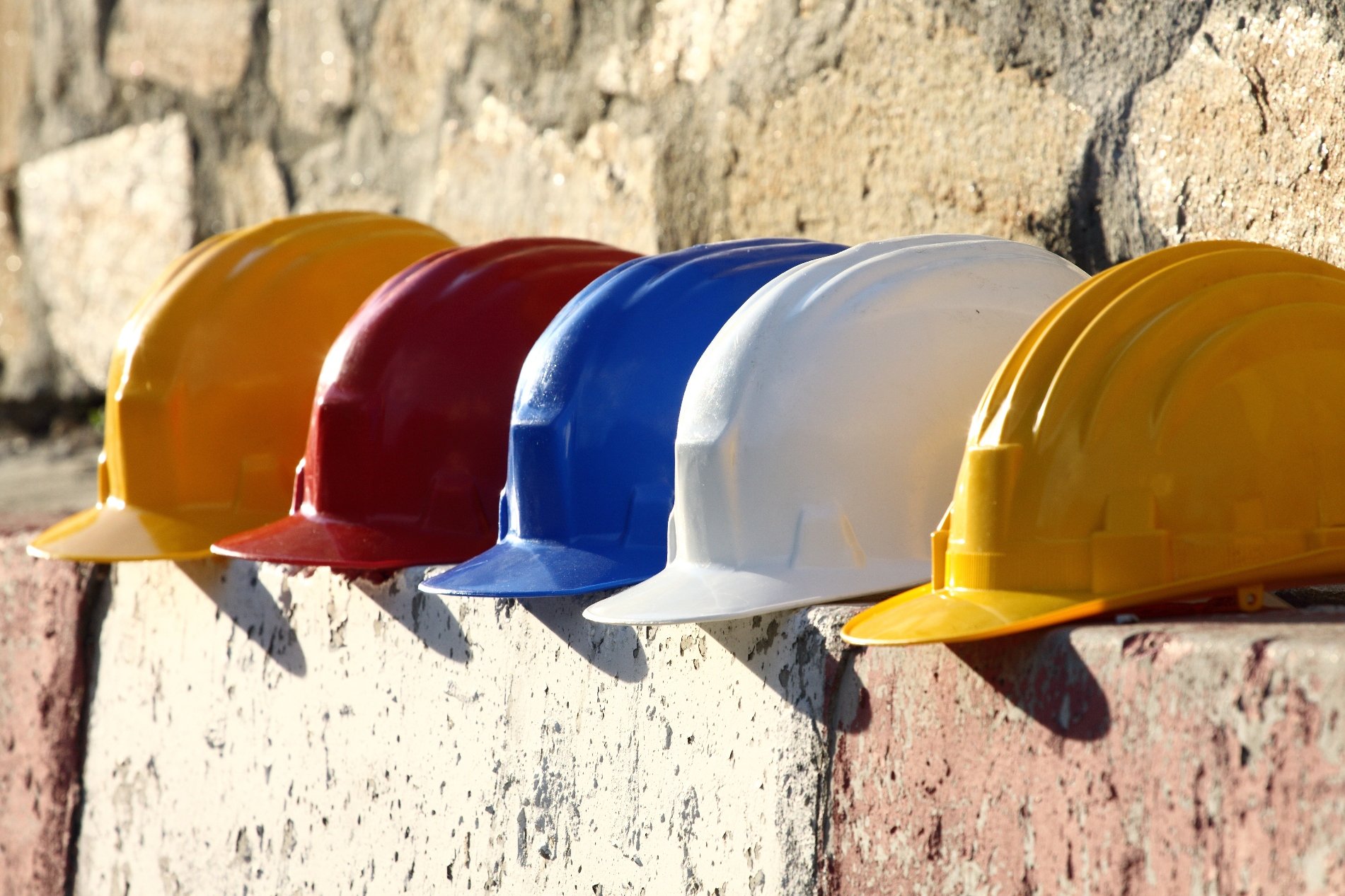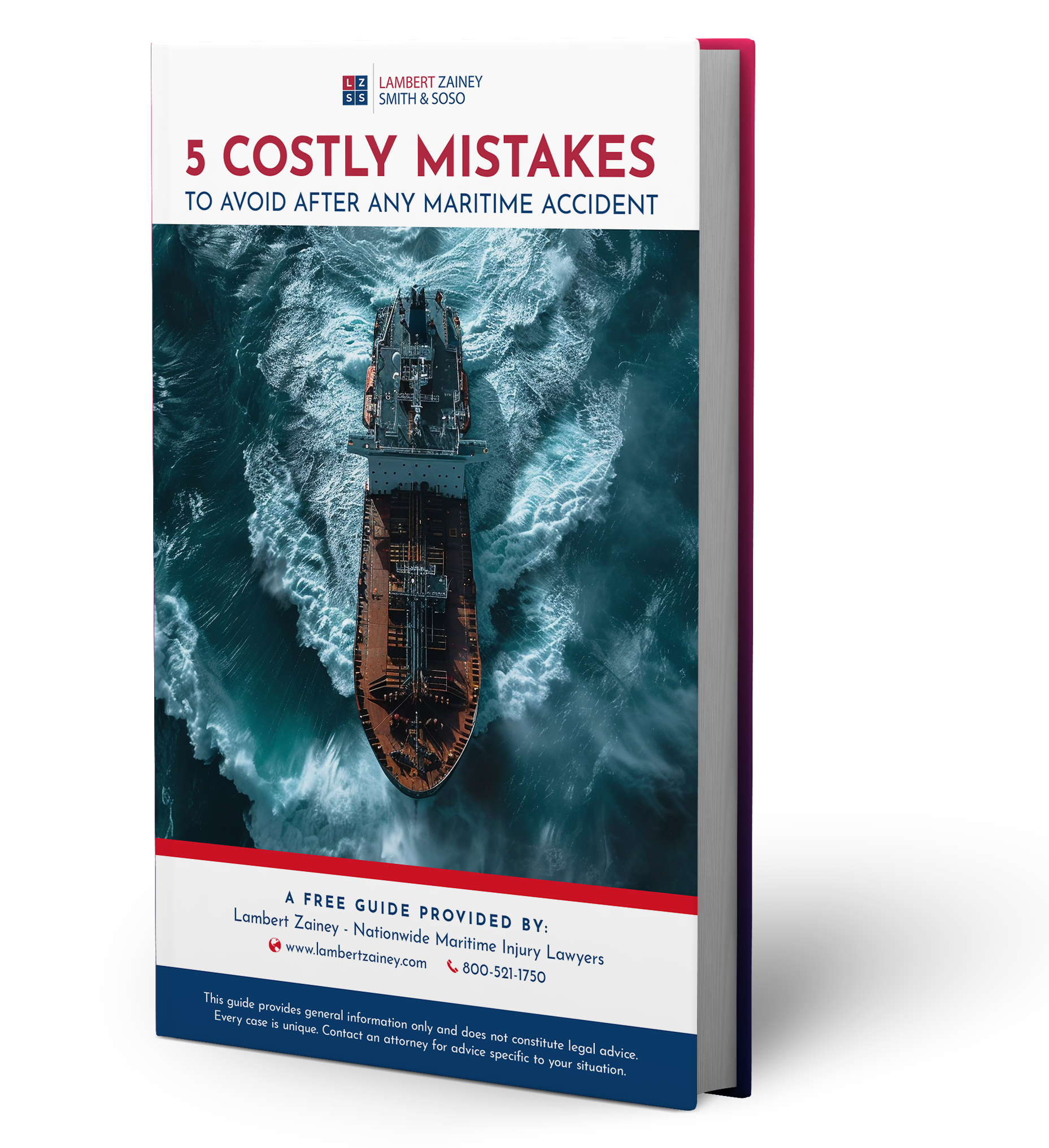Head injuries are common in the maritime industry due to the nature of the work. When working on a vessel, on a dry dock or anywhere that has confined spaces and moving, heavy objects, the risk of a head injury is high.
Maritime workers are surrounded by cranes, crawling through confined spaces and walking through doors with low hanging beams. Anyone who has ever set foot inside a tug boat has seen that the doorways and manholes do not look like they were made for adults. Often times it is even hard for a smaller adult to squeeze through these openings.

How Injuries Occur
Injuries to the head can occur even if proper precautions are taken. However, there are times when these injuries are preventable.
Many injuries are due to negligence of vessel owners and other employers. These injuries can occur due to a vessel’s unseaworthy condition or when the vessel is not fit for its intended use. Railings and beams that are not secure and pieces of the vessel that come loose and strike a worker in the head are examples of unseaworthy conditions.
These injuries also occur with unsecured crane loads or unsecured falling objects. Maritime employers should be taking steps to prevent all of these types of accidents. The employer is responsible for ensuring that the vessel is reasonably safe for workers.
Types of Head Injuries
There are two different types of head injuries: open and closed.
Open head injuries occur when the skull is penetrated or broken. This type of injury typically occur because of a fast moving object penetrating the skull. However, these injuries can be from anything that causes a break in the skull.
Closed head injuries occur when a maritime worker suffers a hard blow to the head. These types of injuries can vary widely in severity, from minor to catastrophic, and are usually more difficult to diagnose. A concussion is an example of a closed head injury.
Get Our FREE Guide to Protect Your Claim
What you do after an accident is critical. Insurance companies will try to get you to make mistakes that can hurt your claim. Our free guide can help you avoid these traps.
Download our complimentary guide: “5 Costly Mistakes to Avoid After Any Maritime Accident” to arm yourself with the knowledge you need to protect your rights.
Preventing Head Injuries for Maritime Workers
To prevent injuries to the head, maritime workers should always wear hard hats where necessary. Be aware of your surroundings, and do not walk beneath a crane hoisting a load. Make sure loose loads are secure when a vessel is underway. Following these steps can help to prevent injuries and keep workers safe.
If you do suffer a head injury, always report it immediately to your employer.
Based in New Orleans, Louisiana, Lambert Zainey represents victims of all types of maritime accidents. If you or a loved one has suffered an injury on the job, please call Lambert Zainey today to receive a free case evaluation.
Head injuries are common in the maritime industry due to the nature of the work. When working on a vessel, on a dry dock or anywhere that has confined spaces and moving, heavy objects, the risk of a head injury is high.
Maritime workers are surrounded by cranes, crawling through confined spaces and walking through doors with low hanging beams. Anyone who has ever set foot inside a tug boat has seen that the doorways and manholes do not look like they were made for adults. Often times it is even hard for a smaller adult to squeeze through these openings.

How Injuries Occur
Injuries to the head can occur even if proper precautions are taken. However, there are times when these injuries are preventable.
Many injuries are due to negligence of vessel owners and other employers. These injuries can occur due to a vessel’s unseaworthy condition or when the vessel is not fit for its intended use. Railings and beams that are not secure and pieces of the vessel that come loose and strike a worker in the head are examples of unseaworthy conditions.
These injuries also occur with unsecured crane loads or unsecured falling objects. Maritime employers should be taking steps to prevent all of these types of accidents. The employer is responsible for ensuring that the vessel is reasonably safe for workers.
Types of Head Injuries
There are two different types of head injuries: open and closed.
Open head injuries occur when the skull is penetrated or broken. This type of injury typically occur because of a fast moving object penetrating the skull. However, these injuries can be from anything that causes a break in the skull.
Closed head injuries occur when a maritime worker suffers a hard blow to the head. These types of injuries can vary widely in severity, from minor to catastrophic, and are usually more difficult to diagnose. A concussion is an example of a closed head injury.
Get Our FREE Guide to Protect Your Claim
What you do after an accident is critical. Insurance companies will try to get you to make mistakes that can hurt your claim. Our free guide can help you avoid these traps.
Download our complimentary guide: “5 Costly Mistakes to Avoid After Any Maritime Accident” to arm yourself with the knowledge you need to protect your rights.
Preventing Head Injuries for Maritime Workers
To prevent injuries to the head, maritime workers should always wear hard hats where necessary. Be aware of your surroundings, and do not walk beneath a crane hoisting a load. Make sure loose loads are secure when a vessel is underway. Following these steps can help to prevent injuries and keep workers safe.
If you do suffer a head injury, always report it immediately to your employer.
Based in New Orleans, Louisiana, Lambert Zainey represents victims of all types of maritime accidents. If you or a loved one has suffered an injury on the job, please call Lambert Zainey today to receive a free case evaluation.









